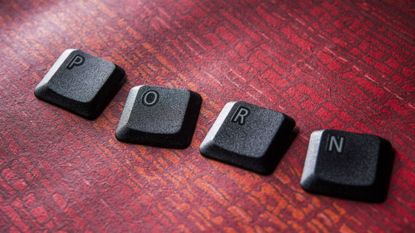Porn detoxing is a thing and it might just save your relationship
A new 90-day masturbation-abstinence - or porn detox - programme is helping men (and women) dependent on digital porn to regain control of their sex lives. But does it work? Gareth May reports

A new 90-day masturbation-abstinence - or porn detox - programme is helping men (and women) dependent on digital porn to regain control of their sex lives. But does it work? Gareth May reports
At the height of Jack’s* habit, he would lose up to six hours a day to watching porn. Scrolling from clip to clip on platforms such as YouPorn, or clicking through social-media and streaming services, each video another girl, another kick. He drifted from vanilla scenes, to anal, to graphic group sex. And after every orgasm, he’d feel guilty and ashamed. He needed a porn detox.
‘The final straw was when I woke up at 3am one morning with my pyjama bottoms around my ankles and an empty bottle of poppers on the floor [to accentuate orgasm],’ says Jack. ‘I sat there and cried.’ Unable to hide his habit any longer, he told his girlfriend. ‘She already knew and we both realised I needed help.’ That’s how Jack, 23, from London, discovered NoFap, the online abstinence programme for men.
NoFap was founded in 2011 by Alexander Rhodes, an American from Pittsburgh who was 21 at the time and whose personal story mimics that of Jack’s. Despite the somewhat crude brand name (derived from Manga comics’ onomatopoeic expression for masturbation) NoFap’s model of recovery is common sense – avoid using your computer in a private setting, spend time pro-actively, limit your browsing.
The first ‘porn detox’ community of its kind, NoFap started as a simple Reddit thread but fast became the go-to forum for anyone developing an Internet porn habit. Today it has over 200,000 members worldwide, mostly men aged in their late-teens to mid-thirties, although three per cent are women. NoFap is free to join and the ‘fapstronauts’ or ‘rebooters’ (as they call themselves) have their own forum and distinct terminology (‘blue petal’ is the female equivalent of ‘blue balls’, a term used to describe sexual frustration). Male or female, Rhodes claims NoFap has a 50 per cent success rate in leading members through the porn detox to a more sex-positive and fulfilling life.
Gary*, 19, from New York, started watching porn at 14; by 19 his three-hours-a-day habit had become a ‘secret shame’. He couldn’t look friends in the eye and had developed erectile dysfunction. It took tragedy – the suicide of a close friend – to shake him out of ‘porn daze’. ‘My friend was someone in a similar situation, he had a history of depression [too]. I realised my habit was masking my sadness and insecurities,’ says Gary. ‘It scared me into making major changes to my lifestyle.’ Currently on a 90-day porn detox programme, he’s already noticed a positive change to his moods, despite finding it hard to adapt.
Rhodes believes that many young men (and women) born in the digital age are having their sexuality hijacked by online pornography; that during our formative adolescent years when our ‘sexual template’ is being established, porn disrupts the process. The 90-day period of abstinence promoted by NoFap (no porn, no masturbation and, in ‘hard mode’, no sex) resets our sexuality back to its natural state, when it wasn’t influenced by ‘an artificial stimulus that is unnatural, ever-present, and available in limitless amounts’. ‘We call this “rebooting”,’ says Rhodes. ‘The most effective way of quitting porn is by rebooting your brain back to its default factory setting, like a computer that’s been infiltrated by viruses.’
Marie Claire Newsletter
Celebrity news, beauty, fashion advice, and fascinating features, delivered straight to your inbox!
Last year, 64 million people worldwide watched porn every day – that’s the equivalent of the entire population of the UK. But when does watching porn go from something that people ‘just do’ to something more sinister? One scroll through the NoFap forum and a range of typical themes emerge, with rebooters describing feelings of loneliness and depression. Joy Rosendale, a psychosexual therapist specialising in sex addiction and couples counselling, says compulsive masturbation is more about issues with self-worth and rejection than sex. ‘Many men become heavy pornography users through opportunity, but the core of a habit that continues is deeper than “I’m bored”, it’s about escape.’

Like other agents of abandon, such as alcohol and drugs, porn is incredibly potent. And when it becomes an emotional crutch, it can be psychologically damaging, as well as harmful to real-life relationships. ‘If my wife was out, I would get home from work and not even eat,’ says Jon*, from Norwich, who became dependent on porn throughout his thirties. ‘I’d drink wine and watch verbal-humiliation videos, getting off to web-cam girls telling me I was “ugly” and “a pervert”. On occasions, I would still be there at 2am trying to finish off, but there were many times that I couldn’t.’ Jon hasn’t watched porn for a year now, after completing the porn detox programme. He credits his wife for supporting him.
Indeed, one forum on NoFap is dedicated to SOs (significant others). In one post, a female user writes: ‘If you’re ever feeling weak, or considering going back to the cycle of bingeing and craving and self-loathing, stay strong for us girls. You’re the Prince Charmings of the 21st century.’
But not all partners are quite as encouraging. About half of NoFap’s traffic comes from women researching their partner’s habit, connecting with other female users, or supporting their SOs in the Partner Support forum. Holly*, 46, from Phoenix, Arizona, was married for 21 years before she discovered her husband’s habit. ‘I realised it didn’t matter how much I tried to initiate sex, he had no interest,’ says Holly. ‘He remained faithful to PMO [Porn/Masturbation/Orgasm – the NoFap term for a porn habit], but not to our relationship. I fell into a deep depression. I had no self-esteem and felt worthless. It hurt that the person I love, the same one who had convinced me I was perfect for him, no longer wanted me. I couldn’t compete with the infinite cycle of girls in porn.’
Rosendale says Holly’s experience is typical, and the challenge for partners is to not take somebody’s porn habit personally. ‘The nature of addiction is Jekyll and Hyde. There’s an honourable self and an addicted self, and sometimes men can have a good sex life and still have a secret addiction. Women often don’t understand that.’
Many of the female partners Rosendale sees at London’s Marylebone Centre, the first clinic of its kind to work with sexual addiction in the UK, go on a 12-week programme to acclimatise to the idea that their partner’s compulsive porn viewing is not their fault. However, anecdotally, Rosendale says that only about a third of couples stay together afterwards.
Does Rosendale believe the 90-day porn detox programme could work? She agrees that NoFap would help people to identify their problem and finding like-minded support, but warns it could be an oversimplified solution. ‘A lasting resolution can only really be found through counselling or similar,’ she says.
That’s not to say that abstinence is the easy option. ‘Flatlining’ is a term rebooters use to describe the come down of not masturbating for a month. Gary describes it as ‘facing a monster’ and the ‘most challenging stage’ of a porn detox reboot. After all, you’re only ever one click from a support forum to a hardcore-porn site.
For those tempted to relapse, the website has a ‘panic button’. Click it and you’re greeted with motivational videos and tweets, from TEDx talks to pithy quotes (‘A smooth sea never made a skilled sailor,’ reads one). But the function of the emergency button (also available as an app, which is downloaded by 6 million people a year) is based on neuroscience.
‘The idea was to apply the dopaminergic system to support the user rather than work against the user,’ explains Rhodes. ‘Pornography exploits the dopamine pathway – the reward circuitry in our brain – and by providing users with motivation rather than pornography, we disrupt the cycle of addiction and rewire the rewards.’
Think of it as a pleasure from achievement; distracting rebooters long enough to last the course so that once they’ve finished the porn detox programme, new neural pathways will light up their brain. For some men, the forum goes beyond reclaiming their sexuality and NoFap becomes a way of life. As one user posts on their Reddit channel: ‘NoFap isn’t a challenge, it’s a lifestyle. What lies after day 90 is day 91. Don’t give up!’
*names have been changed
The leading destination for fashion, beauty, shopping and finger-on-the-pulse views on the latest issues. Marie Claire's travel content helps you delight in discovering new destinations around the globe, offering a unique – and sometimes unchartered – travel experience. From new hotel openings to the destinations tipped to take over our travel calendars, this iconic name has it covered.
-
 Zendaya's reaction to awkward kissing question during Challengers interview has gone viral
Zendaya's reaction to awkward kissing question during Challengers interview has gone viral'Uncomfortable' doesn't begin to cover it
By Iris Goldsztajn
-
 Prince William feels 'immense responsibility' amid Kate and Charles cancer diagnoses
Prince William feels 'immense responsibility' amid Kate and Charles cancer diagnosesHe has a lot on his plate
By Iris Goldsztajn
-
 Taylor Swift just teased a 'timetable' for her new album release
Taylor Swift just teased a 'timetable' for her new album releaseThe wait is torture
By Iris Goldsztajn